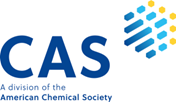Comparison of Early Vs Delayed Beta Blocker Initiation in Acute Myocardial Infarction and's impact on left ventricular ejection fraction recovery
Comparison of Early Versus Delayed Beta Blocker Initiation on LVEF Recovery in AMI
DOI:
https://doi.org/10.69750/dmls.02.010.0158Keywords:
Acute myocardial infarction, Beta-blockers, Left ventricular ejection fraction, Early initiation, Cardiac remodeling, Ventricular arrhythmiaAbstract
Background: Beta-blockers are an established cornerstone in the management of acute myocardial infarction (AMI) due to their cardioprotective, antiarrhythmic, and anti-remodeling effects. However, the optimal timing of their initiation remains clinically debated, particularly regarding their impact on the recovery of left ventricular ejection fraction (LVEF).
Objective: To compare early (within 24 hours) versus delayed (after 72 hours) initiation of beta-blockers in patients with acute myocardial infarction and to assess their effects on LVEF recovery and short-term clinical outcomes.
Methods: This comparative cross-sectional study was conducted at the Punjab Institute of Cardiology, Lahore, Pakistan, from July 2024 to July 2025. A total of 70 patients aged 35–70 years with confirmed AMI were enrolled and divided equally into two groups. Group A received beta-blockers within 24 hours, while Group B received them after 72 hours. LVEF was measured using echocardiography at baseline and at three-month follow-up. Secondary outcomes included arrhythmias, readmissions, and mortality.
Results: Baseline characteristics were similar between groups. Mean LVEF improved significantly in Group A (38.5 ± 5.3% to 49.8 ± 6.2%) compared to Group B (38.9 ± 5.1% to 44.1 ± 5.9%, p < 0.001). Early initiation also reduced ventricular arrhythmias (5.7% vs. 17.1%) and readmission rates (8.6% vs. 20%). No significant differences in bradycardia or hypotension were noted.
Conclusion: Early initiation of beta-blockers within 24 hours after AMI leads to superior LVEF recovery and fewer arrhythmic events compared to delayed therapy. Early beta-blockade should be encouraged in all hemodynamically stable AMI patients.
Downloads
References
Chew D, Heikki H, Schmidt G, et al. Change in left ventricular ejection fraction following first myocardial infarction and outcome. J Am Coll Cardiol EP. 2018;4(5):672–82. doi:10.1016/j.jacep.2017.12.015
Ndrepepa G, Mehilli J, Martinoff S, et al. Evolution of left ventricular ejection fraction and its relationship to infarct size after acute myocardial infarction. J Am Coll Cardiol. 2007;50(2):149–56. doi:10.1016/j.jacc.2007.03.034
Sjøli B, Ørn S, Grenne B, Vartdal T, Smiseth OA, Edvardsen T, Brunvand H. Comparison of left ventricular ejection fraction and left ventricular global strain as determinants of infarct size in patients with acute myocardial infarction. J Am Soc Echocardiogr. 2009;22(11):1232–8. doi:10.1016/j.echo.2009.07.027
Carasso S, Agmon Y, Roguin A, Keidar Z, Israel O, Hammerman H, Lessick J. Left ventricular function and functional recovery early and late after myocardial infarction: a prospective pilot study comparing two-dimensional strain, conventional echocardiography, and radionuclide myocardial perfusion imaging. J Am Soc Echocardiogr. 2013;26(11):1235–44. doi:10.1016/j.echo.2013.07.008
Wu WY, Biery DW, Singh A, Divakaran S, Berman AN, Ayuba G, DeFilippis EM, Nasir K, Januzzi JL, Di Carli MF, Bhatt DL, Blankstein R. Recovery of left ventricular systolic function and clinical outcomes in young adults with myocardial infarction. J Am Coll Cardiol. 2020;75(22):2804–15. doi:10.1016/j.jacc.2020.03.074
Dauw J, Martens P, Deferm S, et al. Left ventricular function recovery after ST-elevation myocardial infarction: correlates and outcomes. Clin Res Cardiol. 2021;110:1504–15. doi:10.1007/s00392-021-01887-y
Lei Z, Li B, Li B, et al. Predictors and prognostic impact of left ventricular ejection fraction trajectories in patients with ST-segment elevation myocardial infarction. Aging Clin Exp Res. 2022;34:1429–38. doi:10.1007/s40520-022-02087-y
Wohlfahrt P, Jenča D, Melenovský V, Šramko M, Kotrč M, Želízko M, et al. Trajectories and determinants of left ventricular ejection fraction after the first myocardial infarction in the current era of primary coronary interventions. Front Cardiovasc Med. 2022;9:1051995. doi:10.3389/fcvm.2022.1051995
Wilcox J, Fang J, Margulies K, et al. Heart failure with recovered left ventricular ejection fraction: JACC scientific expert panel. J Am Coll Cardiol. 2020;76(6):719–34. doi:10.1016/j.jacc.2020.05.075
Schwaiger JP, Reinstadler SJ, Tiller C, et al. Baseline LV ejection fraction by cardiac magnetic resonance and 2D echocardiography after ST-elevation myocardial infarction – influence of infarct location and prognostic impact. Eur Radiol. 2020;30:663–71. doi:10.1007/s00330-019-06316-3
Meimoun P, Abdani S, Stracchi V, Elmkies F, Boulanger J, Botoro T, Zemir H, Clerc J. Usefulness of noninvasive myocardial work to predict left ventricular recovery and acute complications after acute anterior myocardial infarction treated by percutaneous coronary intervention. J Am Soc Echocardiogr. 2020;33(10):1180–90. doi:10.1016/j.echo.2020.07.008
Hayano J, Ueda N, Kisohara M, Yuda E, Carney RM, Blumenthal JA. Survival predictors of heart rate variability after myocardial infarction with and without low left ventricular ejection fraction. Front Neurosci. 2021;15:610955. doi:10.3389/fnins.2021.610955
Jabbar A, Ingoe L, Junejo S, et al. Effect of levothyroxine on left ventricular ejection fraction in patients with subclinical hypothyroidism and acute myocardial infarction: a randomized clinical trial. JAMA. 2020;324(3):249–58. doi:10.1001/jama.2020.9389
Wang Y, Chien CW, Xu Y, Tung TH. Effect of exercise-based cardiac rehabilitation on left ventricular function in Asian patients with acute myocardial infarction after percutaneous coronary intervention: a meta-analysis of randomized controlled trials. Healthcare. 2021;9:774. doi:10.3390/healthcare9060774
Hosseinpour A, Kheshti F, Kazemi A, et al. Comparing the effect of bone marrow mononuclear cells with mesenchymal stem cells after acute myocardial infarction on improvement of left ventricular function: a meta-analysis of clinical trials. Stem Cell Res Ther. 2022;13:203. doi:10.1186/s13287-022-02883-3
Podlesnikar T, Pizarro G, Fernández-Jiménez R, et al. Left ventricular functional recovery of infarcted and remote myocardium after ST-segment elevation myocardial infarction (METOCARD-CNIC randomized clinical trial substudy). J Cardiovasc Magn Reson. 2020;22:44. doi:10.1186/s12968-020-00638-8
Ben Driss A, Ben Driss Lepage C, Sfaxi A, Hakim M, Elhadad S, Tabet JY, Salhi A, Brandao Carreira V, Hattab M, Meurin P, Weber H, Ou P, Quignodon JF, Jondeau G, Laissy JP. Strain predicts left ventricular functional recovery after acute myocardial infarction with systolic dysfunction. Int J Cardiol. 2020;307:1–7. doi:10.1016/j.ijcard.2020.02.039
Lackermair K, Brunner S, Orban M, et al. Outcome of patients treated with extracorporeal life support in cardiogenic shock complicating acute myocardial infarction: 1-year result from the ECLS-Shock study. Clin Res Cardiol. 2021;110:1412–20. doi:10.1007/s00392-020-01778-8
Primessnig U, Pieske BM, Sherif M. Increased mortality and worse cardiac outcome of acute myocardial infarction during the early COVID-19 pandemic. ESC Heart Fail. 2021;8:333–43. doi:10.1002/ehf2.13075
Kristensen AMD, Bovin A, Zwisler AD, et al. Design and rationale of the Danish trial of beta-blocker treatment after myocardial infarction without reduced ejection fraction: study protocol for a randomized controlled trial. Trials. 2020;21:415. doi:10.1186/s13063-020-4214-6






















